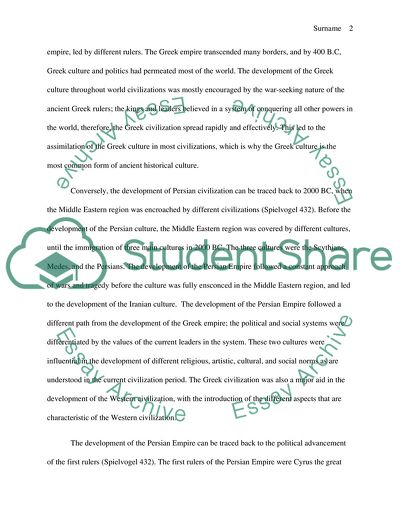Cite this document
(The Role of Greek and Persian Civilizations Essay Example | Topics and Well Written Essays - 1500 words, n.d.)
The Role of Greek and Persian Civilizations Essay Example | Topics and Well Written Essays - 1500 words. https://studentshare.org/history/1759934-compare-and-contrast-two-distinct-areas-of-the-world-at-roughly-the-same-point-in-history-prior-to-1815
The Role of Greek and Persian Civilizations Essay Example | Topics and Well Written Essays - 1500 words. https://studentshare.org/history/1759934-compare-and-contrast-two-distinct-areas-of-the-world-at-roughly-the-same-point-in-history-prior-to-1815
(The Role of Greek and Persian Civilizations Essay Example | Topics and Well Written Essays - 1500 Words)
The Role of Greek and Persian Civilizations Essay Example | Topics and Well Written Essays - 1500 Words. https://studentshare.org/history/1759934-compare-and-contrast-two-distinct-areas-of-the-world-at-roughly-the-same-point-in-history-prior-to-1815.
The Role of Greek and Persian Civilizations Essay Example | Topics and Well Written Essays - 1500 Words. https://studentshare.org/history/1759934-compare-and-contrast-two-distinct-areas-of-the-world-at-roughly-the-same-point-in-history-prior-to-1815.
“The Role of Greek and Persian Civilizations Essay Example | Topics and Well Written Essays - 1500 Words”. https://studentshare.org/history/1759934-compare-and-contrast-two-distinct-areas-of-the-world-at-roughly-the-same-point-in-history-prior-to-1815.


